

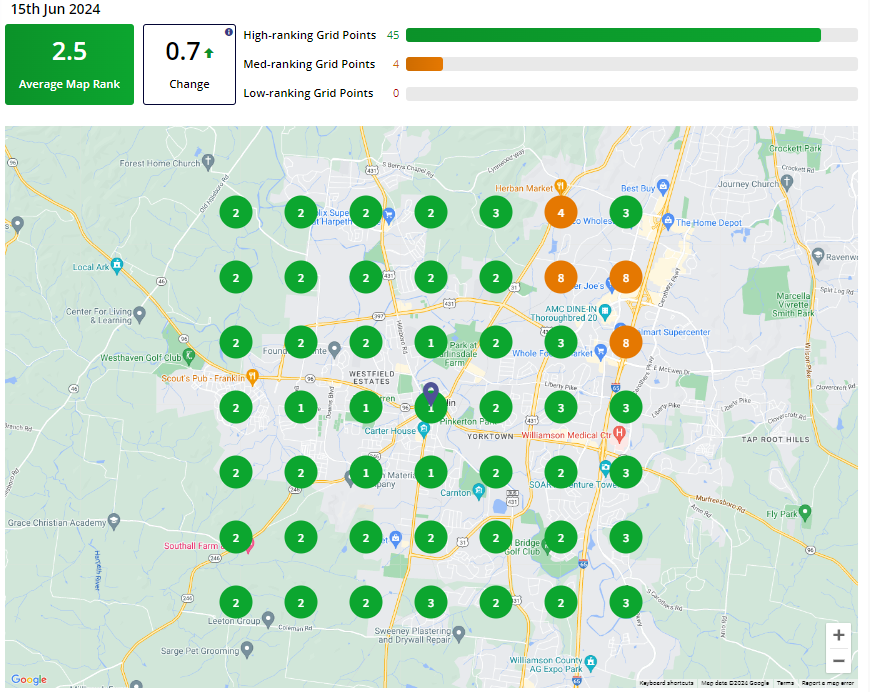
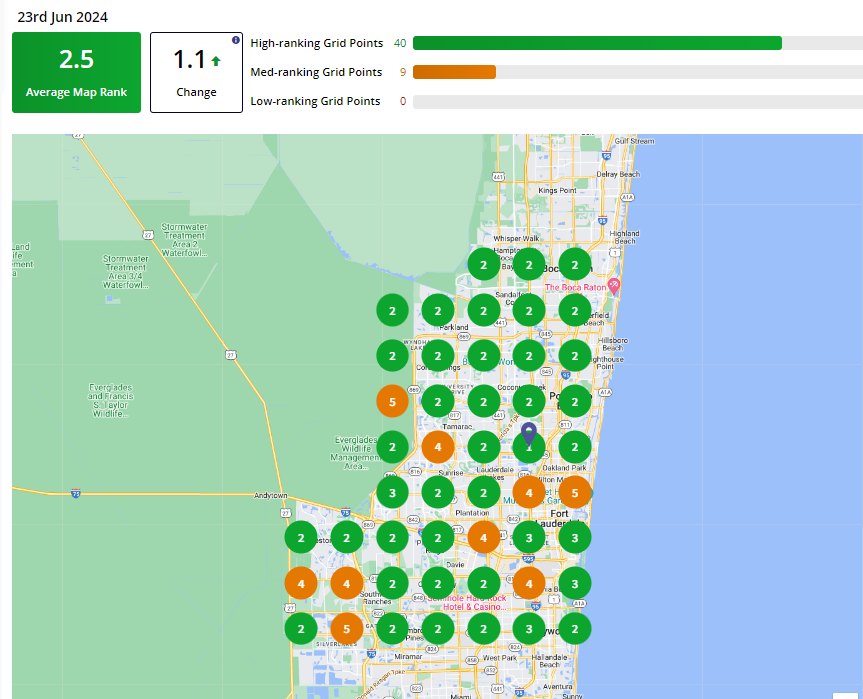
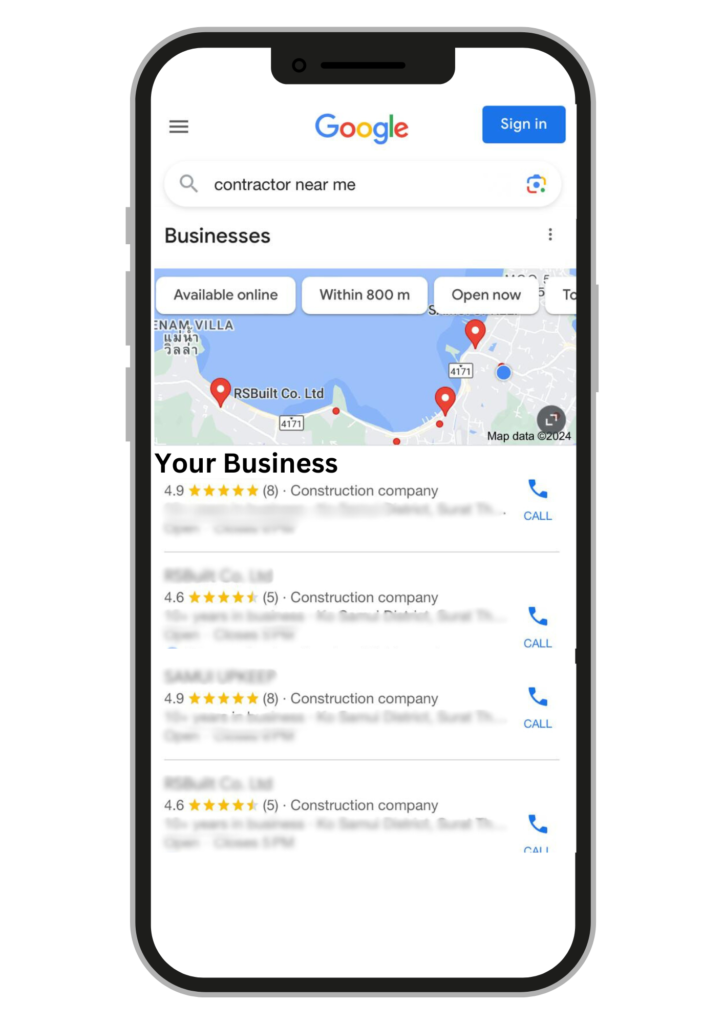


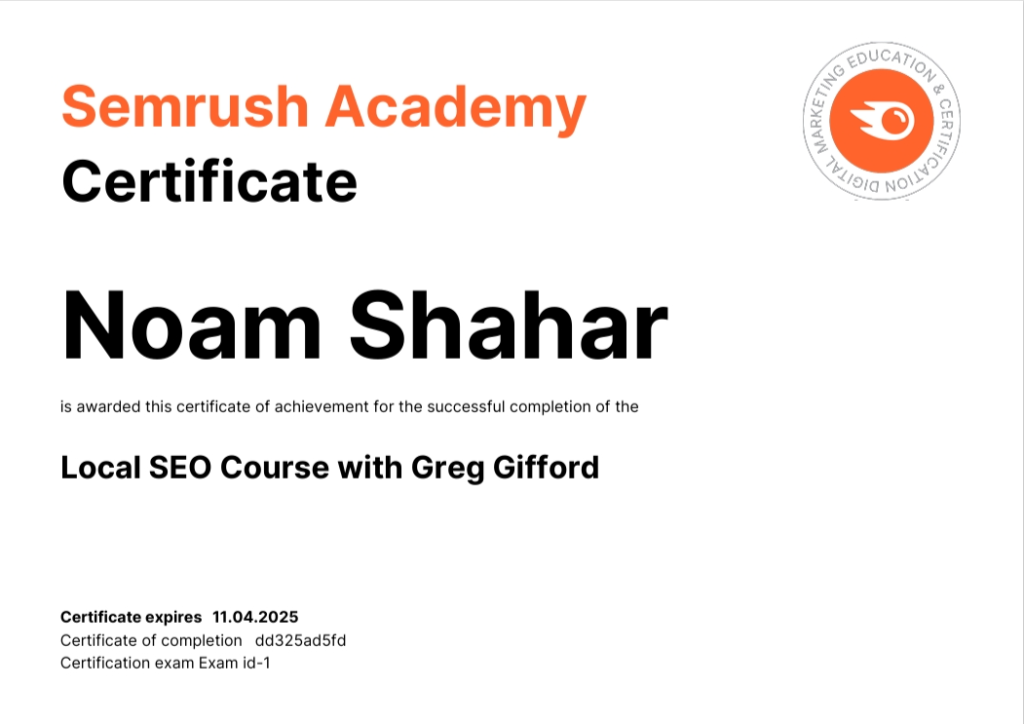
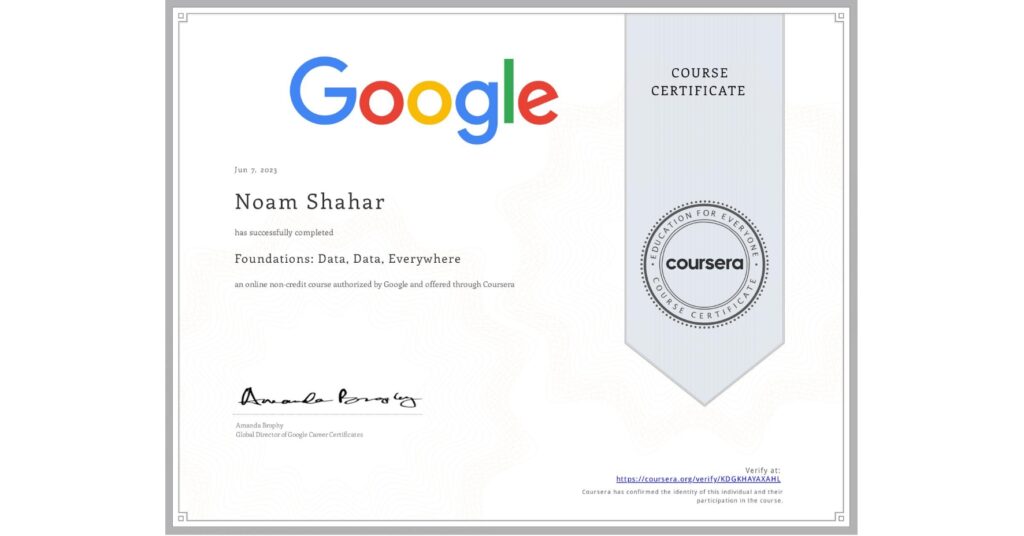
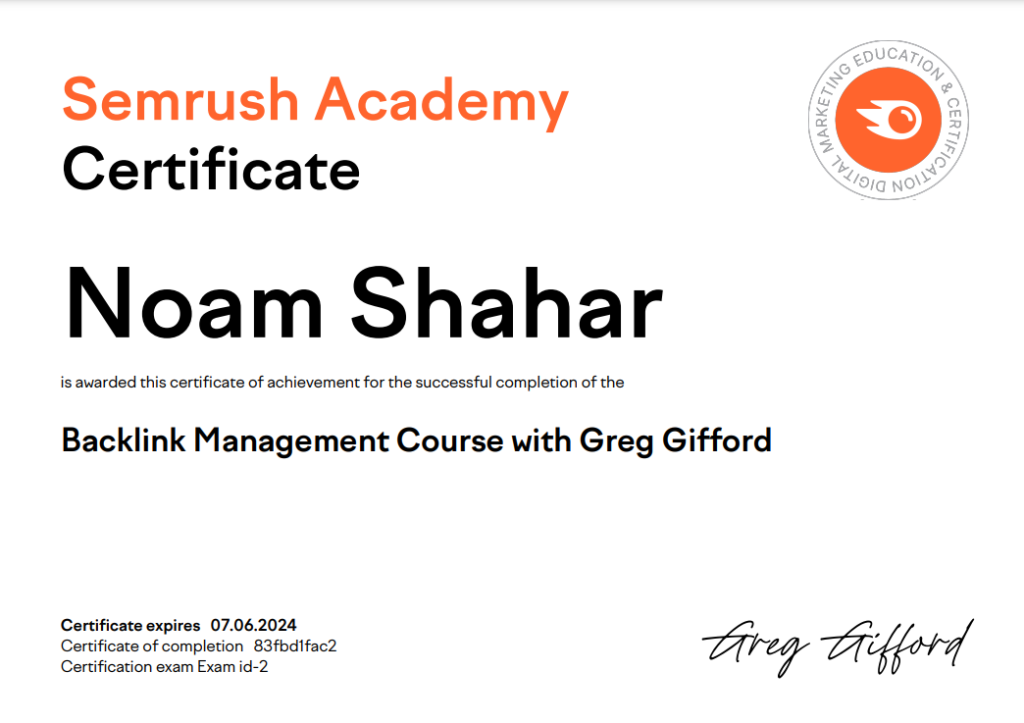

SEO should be viewed as a long-term strategy, with improvements typically visible around the 90-day mark. The specific timeline can vary based on each client’s competitive landscape. Monthly tracking and reporting on the campaign’s progress are conducted through advanced analytics and call tracking solutions.
No one can guarantee organic search placement due to the advanced and constantly changing search engine algorithms. Success in SEO requires analyzing and developing strategies to understand and adapt to the dynamics within the Search Engine Results Pages (SERP).
Success measurement begins with establishing your goals (e.g., increasing contact form submissions or phone calls). Conversion goals are then set and tracked to measure the campaign’s success over time, utilizing tools like contact form conversion goals and call tracking.
Google My Business is a free business listing from Google that enhances your local visibility. It allows you to update your listing with essential business information, appearing in Google search and Google Maps, thereby playing a crucial role in Local SEO strategy.
Yes, changes are often required to improve SEO. Routine updates, such as adding service content, blog posts, and optimizing metadata, are part of a broader content marketing strategy that significantly benefits your SEO.
Local SEO focuses on optimizing your online presence to attract more business from relevant local searches, tailored to specific geographic areas. Regular SEO, while sharing similar principles, doesn’t focus on a geographic location, aiming instead for broader reach.
To start with Local SEO, you can fill out a contact form or schedule time to discuss your local SEO strategy with professionals.